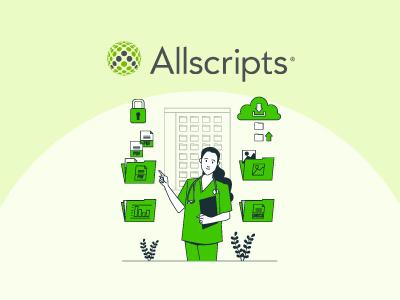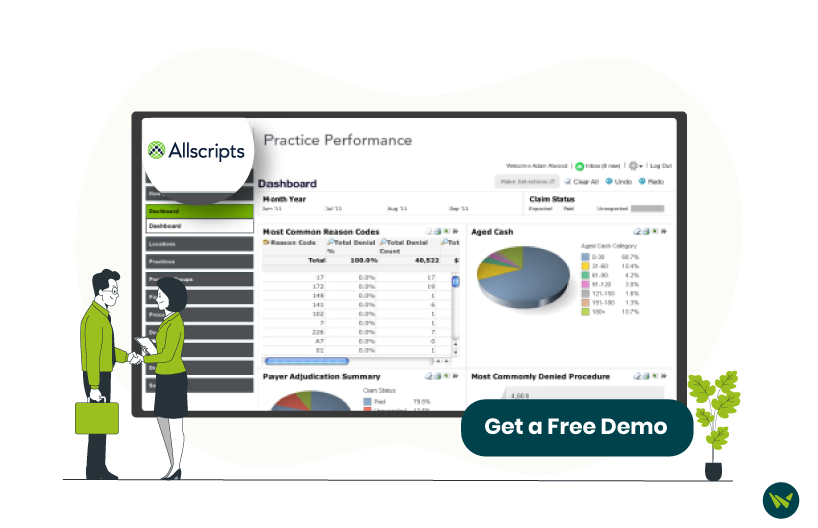
More than 276 million healthcare records were compromised in 2024, with an average of 758,288 exposed every day. This significant rise in data breaches highlights the urgent need to implement robust security measures within electronic health records (EHRs). Many healthcare organizations rely on Allscripts EHR, now known as Veradigm, a trusted platform that offers built-in security tools to help protect sensitive patient information.
However, these tools alone are not enough. Proper implementation and regular attention to security practices are essential to ensure patient data stays protected.
In this guide, we will break down the key features and best practices to help you secure patient health records with Allscripts software.
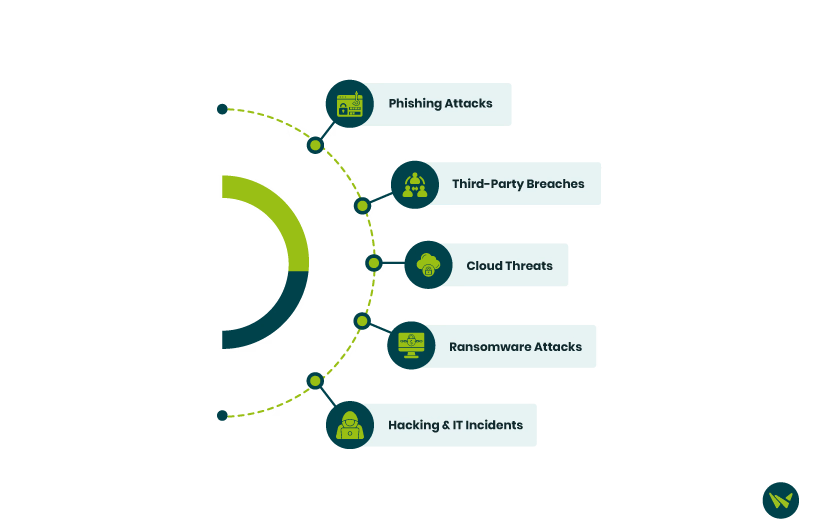
Here’s a list of the most common threats to patient data in EHR systems that healthcare organizations should be aware of to secure protected health information (PHI) and mitigate potential risks:
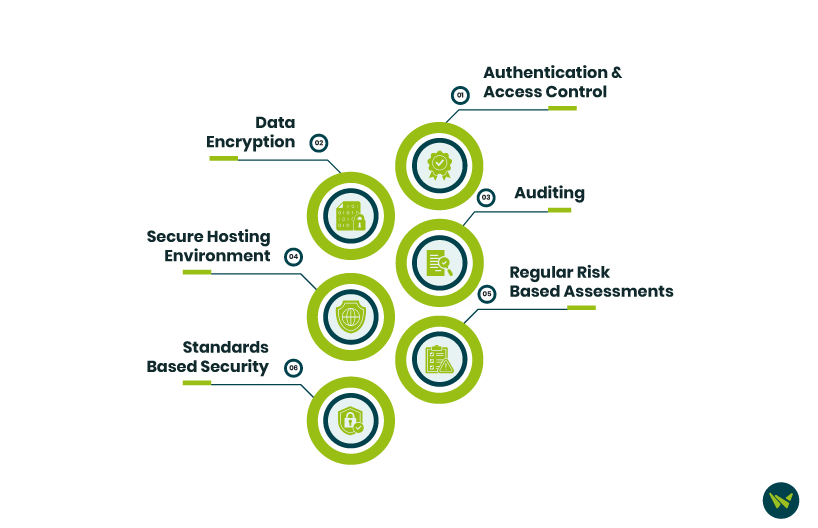
Allscripts offers a range of built-in security features and protocols designed to ensure patient data protection and help healthcare organizations stay compliant with industry standards. Some of these functionalities include:
Authentication And Access Control
Allscripts EMR includes advanced authentication and access control mechanisms to ensure that only authorized individuals can access sensitive patient data. This feature helps maintain the integrity and confidentiality of patient information.
Data Encryption
The software supports data encryption in healthcare by protecting patient health information with robust encryption features. It helps organizations ensure that patient data remains secure, even in the event of unauthorized access.
Auditing
Allscripts records all user activity within the platform. These logs help track unauthorized access attempts and support investigations if a breach occurs.
Secure Hosting Environment
The platform uses advanced hosting security tools such as firewalls, intrusion detection and prevention systems, and physical security controls. These tools help protect patient data stored on its servers from external threats and unauthorized access.
Regular Risk-Based Assessments
Allscripts follows a secure development lifecycle that includes regular risk-based threat assessments. It uses automated code reviews and security testing to identify and fix vulnerabilities during software development and updates.
Standards-Based Security
Allscripts products are certified under leading industry standards such as SOC 2, EHNAC, EPCS, and ISO 9001:2015. These certifications confirm that the platform follows strict security and privacy practices for handling sensitive patient data. The platform also supports compliance with HIPAA requirements to help protect the confidentiality, integrity, and availability of patient health information.
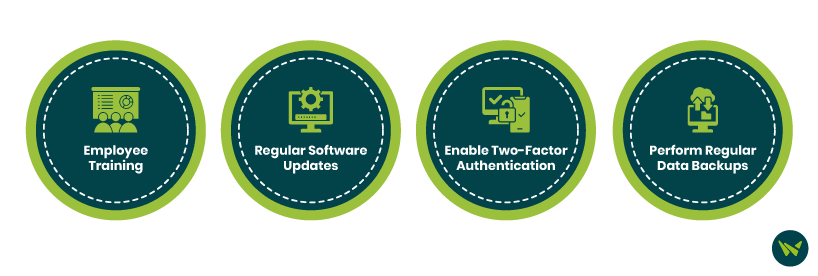
Healthcare providers are required to implement a combination of EHR security measures and cybersecurity protocols to secure patient data with Allscripts medical software. Listed below are some proven strategies that can help your practice strengthen its data protection efforts.
Employee Training
It is important to regularly train your staff to recognize and avoid cyberattacks such as phishing and malware. Allscripts provides educational resources and technical support to assist in keeping your team informed and prepared. You can also contact your Allscripts customer support representative or helpdesk for additional training and cybersecurity guidance.
Regular Software Updates
Regularly updating your software is a critical part of maintaining a secure EHR system. Allscripts provides timely updates to ensure compliance with changing regulations and to patch vulnerabilities. To minimize security risks, it is important to install updates and patches as soon as they become available and stay proactive in maintaining your system’s security.
Enable Two-Factor Authentication
You should enable two-factor authentication (2FA) to add an extra layer of security to your Allscripts software system. 2FA is required when accessing the ‘FollowMyHealth Dashboard’ and for electronically prescribing controlled substances through the EHR. You can choose from supported methods such as the ‘ID.me Authenticator’ app or a ‘YubiKey’ security key.
Perform Regular Data Backups
Backing up your EHR system regularly is essential to protect against data loss from cyberattacks, system failures, or accidental deletions. Allscripts provides tools and support to help automate data backups and ensure your recovery protocols are in place.
The average cost of a healthcare data breach in 2024 was $9.8 million, highlighting the critical need for robust security measures to not only prevent breaches but also minimize potential financial and reputational damage.
As technology evolves and new threats emerge, Allscripts users must continuously adapt their EHR security measures to ensure data protection. Staying informed about the latest security trends and regulations will help them maintain a secure, compliant system.
